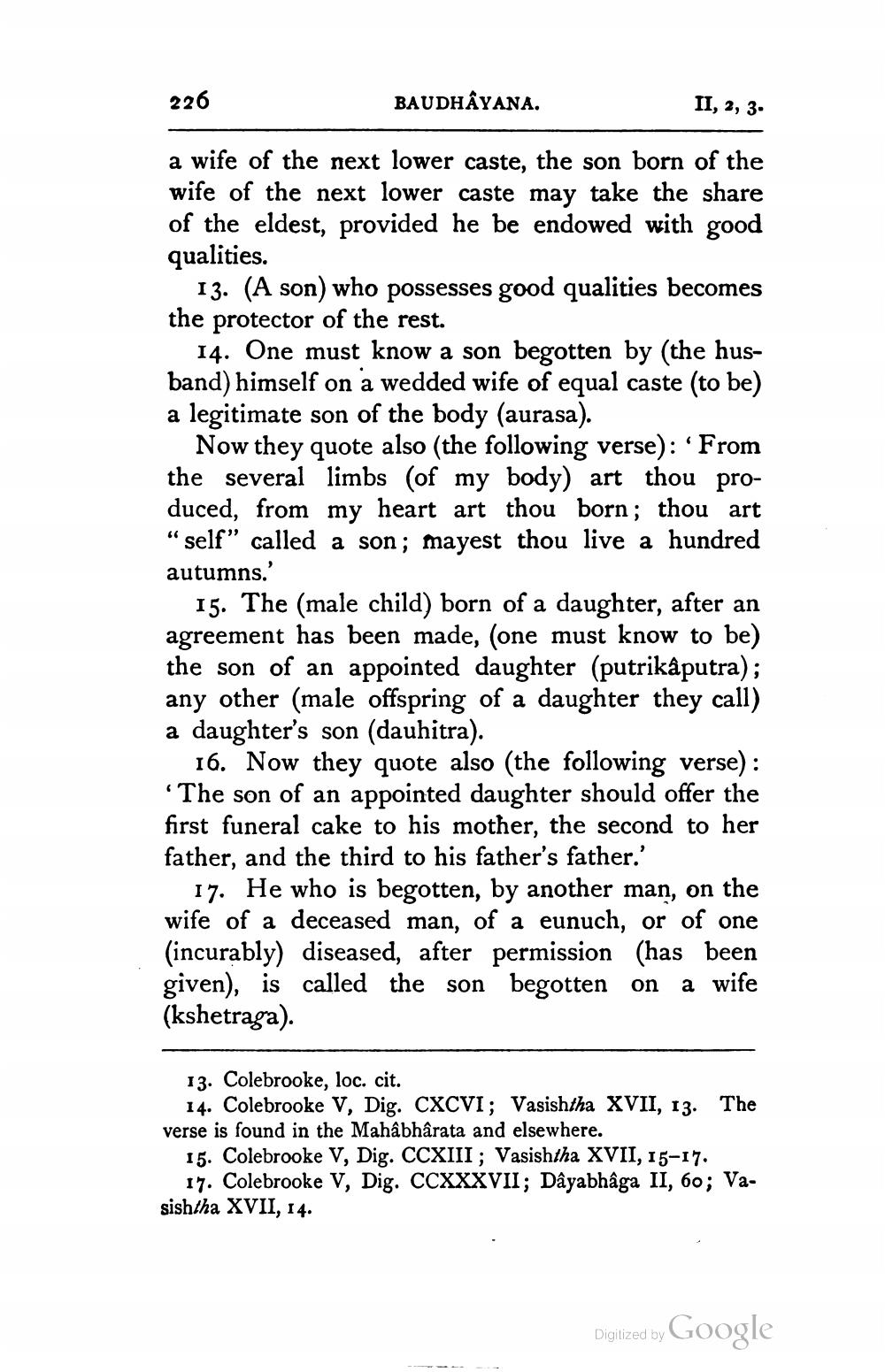________________
226
BAUDHAYANA.
II, 2, 3.
a wife of the next lower caste, the son born of the wife of the next lower caste may take the share of the eldest, provided he be endowed with good qualities.
13. (A son) who possesses good qualities becomes the protector of the rest.
14. One must know a son begotten by (the husband) himself on a wedded wife of equal caste (to be) a legitimate son of the body (aurasa).
Now they quote also (the following verse): 'From the several limbs (of my body) art thou produced, from my heart art thou born; thou art “self” called a son; mayest thou live a hundred autumns.'
15. The (male child) born of a daughter, after an agreement has been made, (one must know to be) the son of an appointed daughter (putrikâputra); any other (male offspring of a daughter they call) a daughter's son (dauhitra).
16. Now they quote also (the following verse): The son of an appointed daughter should offer the first funeral cake to his mother, the second to her father, and the third to his father's father.'
17. He who is begotten, by another man, on the wife of a deceased man, of a eunuch, or of one (incurably) diseased, after permission (has been given), is called the son begotten on a wife (kshetraga).
13. Colebrooke, loc. cit.
14. Colebrooke V, Dig. CXCVI; Vasishtha XVII, 13. The verse is found in the Mahâbhârata and elsewhere.
15. Colebrooke V, Dig. CCXIII; Vasishtha XVII, 15-17.
17. Colebrooke V, Dig. CCXXXVII; Dâyabhâga II, 60; Vasishtha XVII, 14.
Digitized by Google




